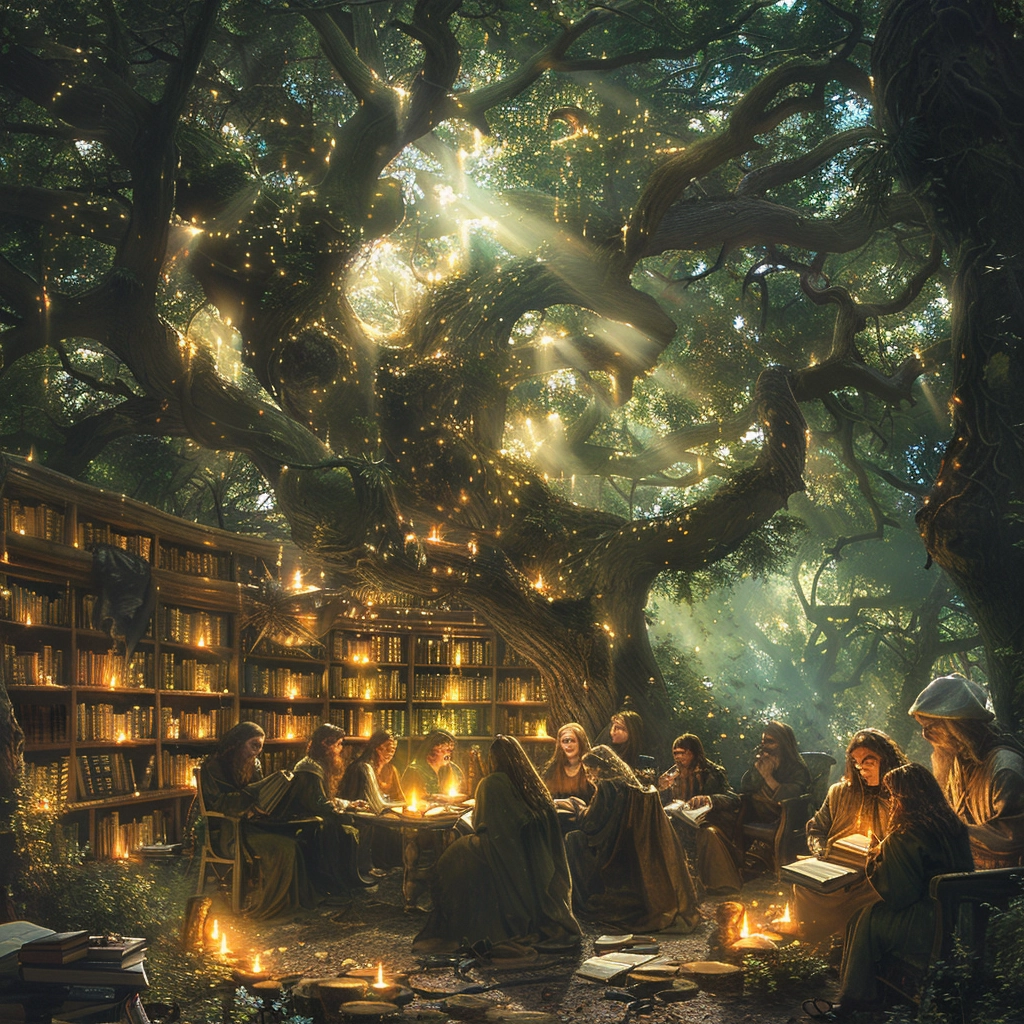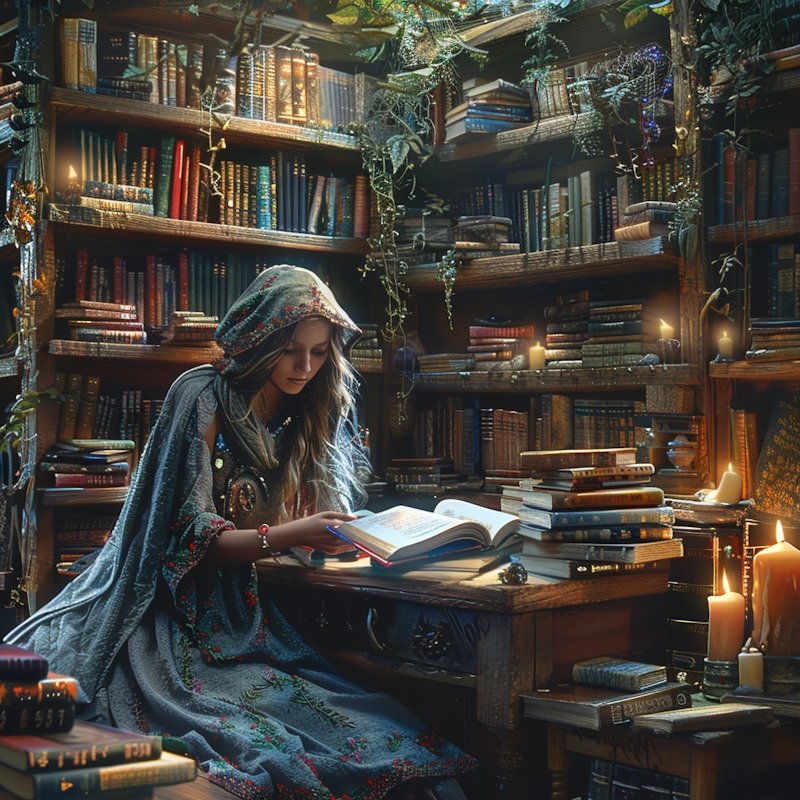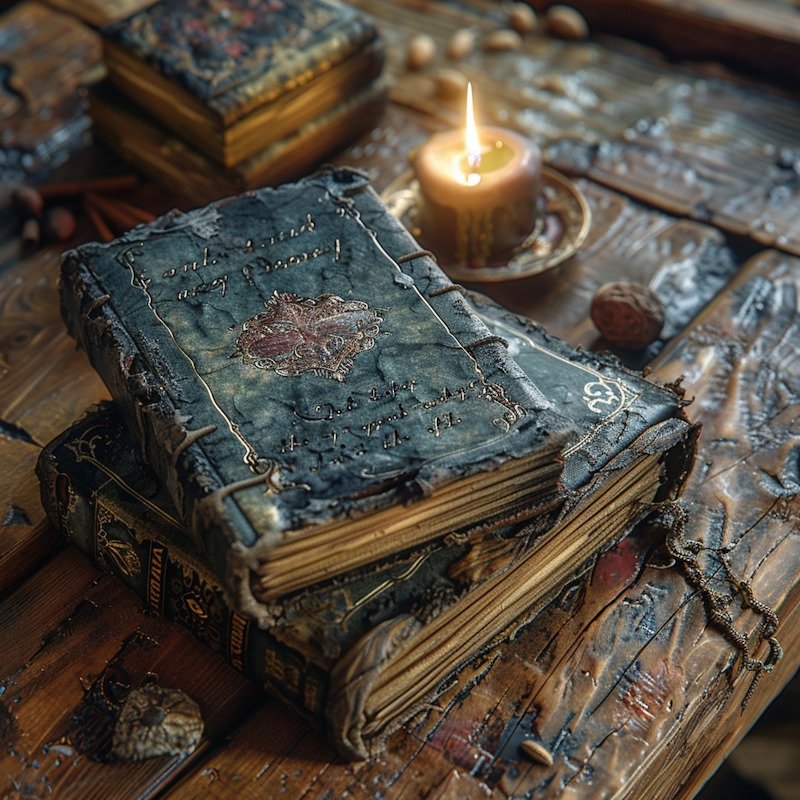As a spiritual path, Wicca fosters a genuine climate of intellectual liberty. Witches honor and respect one another’s freedom, which includes the fundamental freedom to choose what you want to read. There will never be a Wiccan equivalent to the notorious list of forbidden books by the Roman Catholic Church. In the Craft, nobody has any authority to forbid books.
The Role of Economics in Wiccan Literature
Wiccan authors do not need approval to write and publish their books; no one needs approval to read whatever they choose.
Indeed, the only force that influences the availability of Pagan or Wiccan books is sheer economics. Publishers will only bring out books they believe will make a profit, and if a book doesn’t sell many copies (or its sales have dropped by a negligible amount), it will be taken out of print. Books are published not according to how good, accurate, or useful they are, but simply by how much money they will potentially make. A brilliant book on an obscure topic that won’t sell many copies may never get published. In contrast, a schlocky book about the sex lives of Hollywood celebrities will likely be rushed to the press, with the author making big bucks. In commercial publishing, money makes the rules. This is not without its problems, but it’s better than living in a situation where “the authorities” get to choose what we may or may not read.
Embracing Discernment in Reading Choices
Thankfully, Witchcraft does not have a Grand Poo-bah to decree what is worth reading (and what is not). Therefore, Witches must be responsible for figuring out what to read.
And just because a book is a bestseller doesn’t automatically make it an essential book.
Wiccans, let it be known, tend to be opinionated people.
From neophytes to elders, most will have definite opinions regarding the merits of this or that book. Most Witches enthusiastically recommend some books while refusing to endorse others. Although Witches usually oppose censorship, they will still acknowledge that differences in quality exist in books, like everything else.
The Journey to Identify High-Quality Wiccan Writings
My goal has been to identify those titles that represent the highest quality of Wiccan and spiritual writing. Incidentally, just because a book hasn’t been listed here does not necessarily mean it’s not good. Many valuable and useful books on Wicca and related topics were excluded from the final selection.
Tackling Inferior Quality in Pagan Publishing
Why am I even raising this issue? Why don’t I publish my list of books I deem essential and leave it at that, without making a fuss over books I don’t recommend? There are two reasons. First, every Wiccan who talks to other Witches, even over the Internet, will quickly encounter people who strongly oppose this book. “It sucks!” “It’s not real Witchcraft!” “The spells in it are bogus!” is one of the more common attacks on books. More sophisticated critics will attack a book because of poor scholarship, because of its lack of original ideas, or because it contains sexist, racist, or homophobic material. This leads me to my second reason for raising the quality issue. The simple fact is that some books of inferior quality manage to get published.
In the Summer 1998 issue of Gnosis Magazine, Joanna Hautin-Mayer’s article “When is a Celt, not a Celt?” demonstrated how some books written for the Wiccan and Pagan community do not always meet the highest standards of scholarship. In the article, the author highlights how one bestselling book on Wiccan spirituality is riddled with historical inaccuracies, notably suggesting that potatoes were native to Ireland (the potato originates from the New World and did not reach Europe until modern times). Stonehenge is located in Cornwall (actually in Wiltshire). No book, author, or editor is perfect, but these kinds of blatant errors not only confuse people who don’t know any better but also make Wicca look bad to those who do.
Guiding Wiccans Toward Quality Reading Material
Sadly, because the primary reason a book gets published is its potential to generate revenue, some publishers seem too willing, either out of cynicism or negligence, to release books that appear destined to sell well but are poorly written, plagiarized, filled with grammatical or factual errors, or that include offensive material. Of course, most editors and publishers are scrupulously honest and committed to making a profit while publishing high-quality books. But some others may not be so ethical. The bottom line: Every person who reads books on Wicca (or indeed, on any topic) must take responsibility to determine the merits of each book. This is a tricky matter.
After all, most of us read books to learn, which means we’re reading about an unfamiliar subject. So, how do we know whether the book is a quality product?
Strategies for Evaluating Wiccan Literature
There are several ways to approach this question.
Read reviews and get recommendations from people you trust. It always makes sense to see what others think of a book or an author. If someone criticizes a book, get clear reasons why they don’t like it.
When reading something, keep your intuition alert. Always read a book with an open mind—which means you’re open to questioning it (even if you like it). Look for the following warning signs. These questions help you decide if a book is not for you.
Critical Questions for Discerning Readers
Does the book contain racist, sexist, homophobic, or other hateful/hostile messages? Is the tone of the book arrogant? Does the book take an extreme position while heaping harsh, judgmental, or overly vicious criticism on those who disagree? Does the book include information you know for a fact is wrong? Does the book make grandiose claims without backing them up? Does the book advocate any negative or unloving behavior or actions aimed at desecrating the holy symbols of other religions? Does the book suggest that magick involves making deals or pacts with spirits or demons or controlling spiritual entities? Does the book advocate manipulating the free will of others or using the belongings of others (like a lock of hair) in a ritual without their permission?
Embracing the Positive Aspects of Wiccan Reading
I began this post by praising the intellectual freedom within Wicca, and I want to end on that same positive note. Just because a few published books contain mediocre, useless, or harmful material doesn’t mean we should have censorship or book burnings. The Quakers said it best with their old saying, “It’s better to light a candle than to curse the darkness.”
Celebrating the Richness of Wiccan Literature
Fortunately, so many wonderful, beautifully written, and truly magickal books exist on Wicca and related subjects that we don’t need to waste much time worrying about the few losers. If a book gets slammed by a critic you trust for containing sloppy scholarship or questionable ethics, skip over it and move on—there’s sure to be a worthwhile book on the same topic.
The Power of Community in Shaping Wiccan Knowledge
Ultimately, the Wiccan community will decide what the essential books are, and I trust that process far more than anything a centralized authority could ever do. As a reader, it is your responsibility to discern what truly has the most value. So read with an open but discerning mind, and don’t be afraid to discuss your opinions with others or to learn from elders who have knowledge to share.



